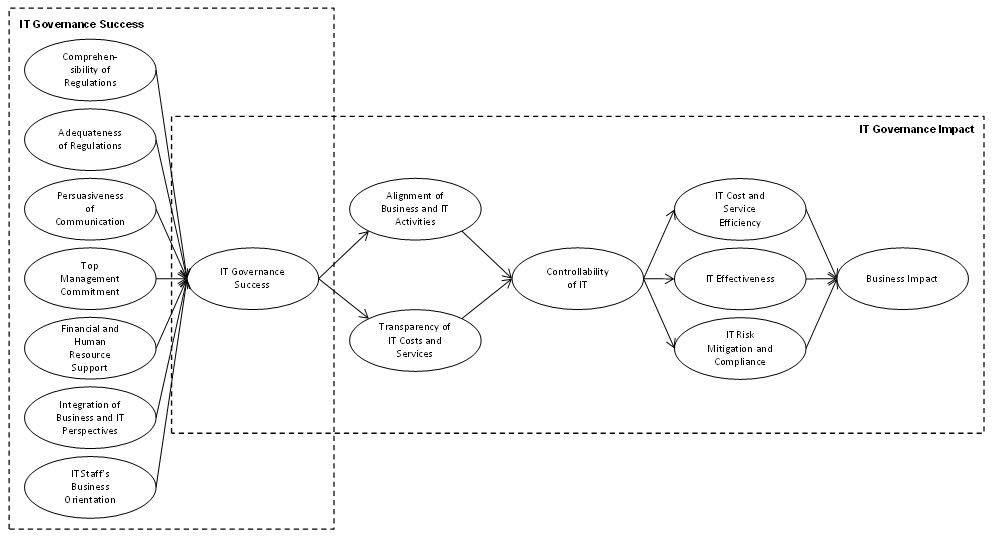|
Today, organizations increasingly use and depend on information technology (IT) to achieve their business objectives. The use of IT is grained through an amalgam of organizational, technical, and cultural influences. Effective IT governance (ITG) is required to orchestrate this mixture, which has become an important issue in both academic research and organizational practice. Despite its popularity, the ITG notion remains vague. The term ITG has been widely used by many parties, such as IT managers, consultants, auditors, and software providers, for various aspects of corporate IT management. Practitioners’ perceptions of ITG objectives, properties, and responsibilities thus appear as unclear and heterogeneous as they do in the literature. In addition, comprehensive knowledge of the factors influencing ITG success and its subsequent impact in terms of a unifying model is scarce. Existing practitioner guides do provide helpful advice, but are often not generalized from specific implementations, display limited rigor, and do not provide sufficient explanation of the cause-effect relationships. Furthermore, previous academic research has only provided studies on individual ITG success determinants and consequences. However, none of these studies combine ITG success determinants and consequences into a comprehensive and integrated model of ITG success and its impact. In a recent research project, we addressed two research objectives accordingly: (1) understanding the factors that influence and result from successful ITG, and (2) integrating these factors into a model that explains ITG success and its impact. Given the rather limited theoretical body of knowledge that underpins ITG success research, we followed a qualitative-explorative approach. We conducted 25 interviews in 19 companies across different industries, analyzed and interpreted the collected data by applying extensive content analysis, and compared our findings with prior research results. Aggregating what we learned from the 25 interviews, we propose a model that describes how the various observed constructs are interrelated and how they contribute to or result from successful ITG. Model of IT Governance Success and Impact Our results contribute to research on ITG by providing a model that explains how ITG should be designed in order to be successful and what the organizational impact of successful ITG will be. Our research identified several constructs and relationships that are strongly supported by empirical evidence, some of which previous research has not investigated. Practitioners will benefit from this model, because it enables them to better set up and develop ITG, as well as to understand and promote its potential impact.
The research results have recently been accepted for publication: Urbach, N., Buchwald, A. and Ahlemann, F. (2013) Understanding IT Governance Success and its Impact: Results from an Interview Study, Proceedings of the 21st European Conference on Information Systems (ECIS 2013), June 5-8, Utrecht, The Netherlands. (Link)
2 Comments
Leave a Reply. |
Archives
December 2015
Categories
All
|

 RSS Feed
RSS Feed